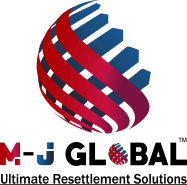Breaking: The IRCC announces the distribution of study permits to every province
Study permits to every province
A statement detailing the process by which Immigration, Refugees and Citizenship Canada (IRCC) determined the final number of study permits every Canadian provinces will receive for 2024 has been made public.
The IRCC clarified that each province would receive an allocation of study permits it could issue to international students, and that the number of permits would be based on the province’s population, in response to the announcement on January 22 that the department would implement a cap on the number of applications that will be processed each year.
Today, Immigration Minister Marc Miller released the final distribution of study permits for each province and explained the IRCC’s approach for arriving at these figures.

The distribution of the allotment
Based on their population, provinces and territories were assigned a certain number of study permit applications.
If no changes are made to the current system, the department observes that some provinces and territories would see an increase in the number of international students in 2024 compared to 2023, while others would see a decrease.
To mitigate any negative effects, the IRCC claims to have modified allocations for provinces that would otherwise receive a reduced number of study permits.
The allocations to those provinces that were expected to have a rise in the number of foreign students in 2024 compared to 2023 were limited to 10% of the total population.
Lastly, the agency increased the funding allotted to the provinces whose approval rate was less than 60%. This, it claims, will assist these provinces in obtaining the anticipated number of authorized
Ontario is allotted the highest amount.
At 235,000, Ontario was allotted the most study permits. It is the most populated province in Canada, with 530 designated learning institutions (DLIs) according to the IRCC’s official list. Nevertheless, the government just disclosed that public schools and universities will receive 96% of the study permits it issues. This implies that only a small number of the province’s private colleges will be able to take in foreign students.
A significant amount of the total allotment was also given to other provinces. Quebec has been allotted 117,917 study licenses after accounting for population and authorized study permits.
Eight3,000 study licenses were allotted by British Columbia in March, with nearly equal numbers going to public and private universities.
Processed IRCC limits permits, not issued

There is a difference between the cap on awarded study permits and the cap on study permits processed by the IRCC.
The minister of immigration has made it clear in recent weeks that the IRCC lacks the power to limit the quantity of study permits that are granted. The department may, nevertheless, set a limit on the quantity of study permit applications it accepts.
According to the IRCC, the expected cap on the number of study permits awarded is determined by the number of applications it will handle, with the cap being based on a 60% national approval rate. The department claims that it will handle 606,000 applications in this case.

